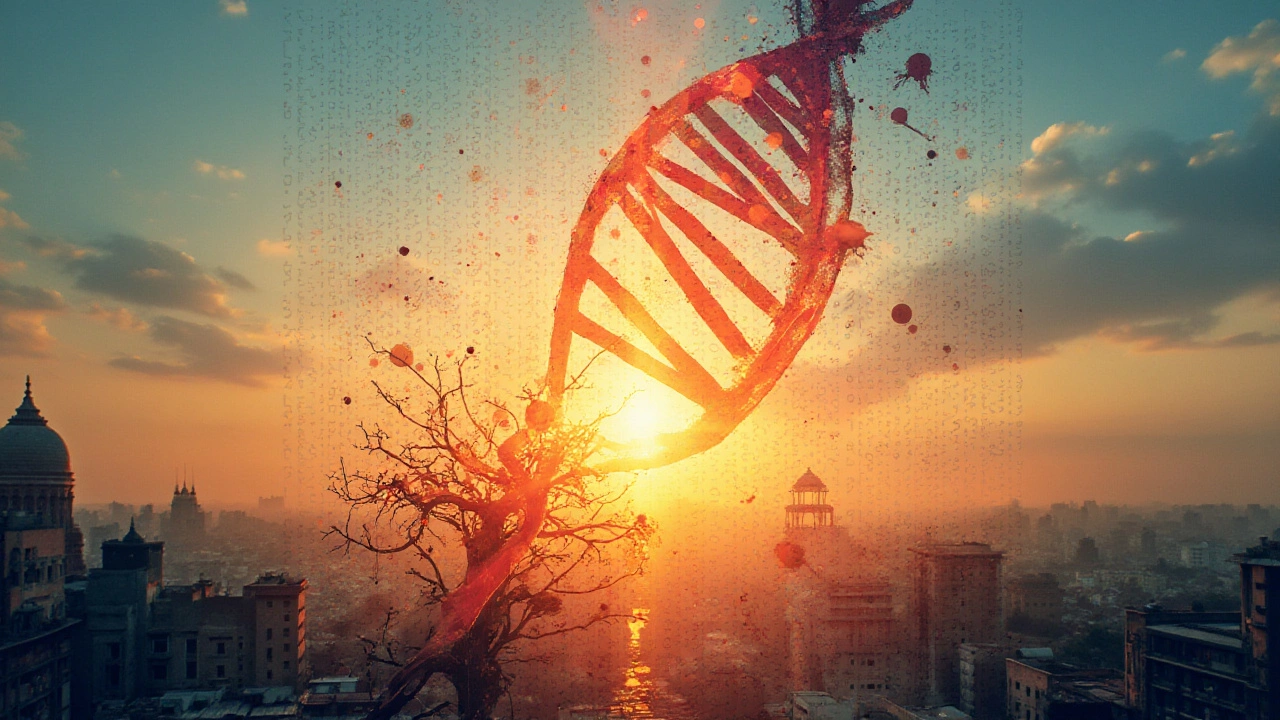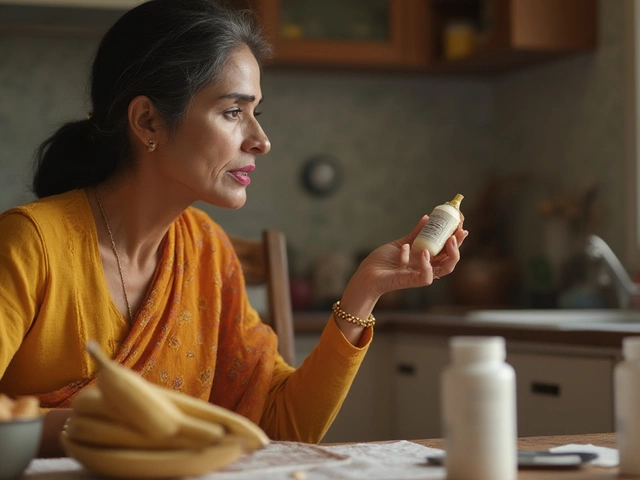Cancer can be a mysterious and daunting word. It's a disease that affects millions of people around the world, yet remains one of the most challenging to fully understand. While there are successful treatments for many types of cancers, there are others for which science has yet to find a cure. This article will focus on these particularly resilient forms of cancer.
We'll explore the reasons behind their stubborn persistence and highlight the complexity of the human body that makes eliminating them so tough. Discover the promising research being conducted to tackle these cancers, and find hope in the steps scientists are making towards breakthroughs. We'll also delve into how individuals diagnosed with uncurable cancer can navigate their journey with resilience and support.
- Uncurable Cancers Explained
- Why Some Cancers Remain Uncurable
- Recent Advances in Cancer Research
- Living with Uncurable Cancer
Uncurable Cancers Explained
There are several types of cancer that modern medicine has yet to conquer completely. While many patients find hope and healing through various treatments, there are certain forms where a cure remains elusive. This isn't because the resources or willpower are lacking; rather, it's the complex and unpredictable nature of cancer that makes some cases exceptionally tough. For example, pancreatic cancer and glioblastoma are known for their aggressive growth and resistance to current therapies, making them some of the most challenging types to treat.
The term "uncurable" doesn't necessarily mean untreatable. In fact, many people live with these cancers for years, thanks to advancements in palliative care and treatment strategies that focus on quality of life rather than outright eradication. One reason these cancers are tough nuts to crack is their ability to evade the immune system, adapt to different environments in the body, and develop resistance to chemotherapy and radiation treatments. Research into understanding these mechanisms is ongoing, providing a glimmer of hope for future breakthroughs. The complexity of tumors also plays a major role. Each tumor is composed of a variety of cells, each with its own set of mutations. This diversity within a single cancer type can make standard treatments ineffective, as some cells may survive and lead to recurrence.
According to the World Health Organization, the global battle against uncurable cancers is as much about managing and living with the disease as it is about finding a cure.
"Cancer is a journey, but you walk the road alone. There are many places to stop along the way and get nourishment - you just have to be willing to take it," said Emily Hollenberg, a respected oncologist, highlighting the support systems that play a critical role in treatment.Advances in genetics and immunotherapy are opening new avenues for therapeutic options that might one day change the landscape. Understanding the genetic makeup of tumors can lead to targeted therapies that focus on specific mutations, potentially turning terminal diagnoses into manageable conditions.
In addition, ongoing clinical trials are at the forefront, testing new drugs and techniques in real-world scenarios. Some trials focus on combining existing treatments in novel ways to enhance their efficacy. Participating in these trials offers patients access to cutting-edge therapies while contributing to scientific understanding. The path ahead may be long, and the challenges numerous, but for many, hope persists in every new scientific paper published and trial commenced. The journey to finding cures for all cancers continues, step by step, in laboratories and hospitals worldwide, with determination and relentless pursuit.

Why Some Cancers Remain Uncurable
Understanding why some forms of cancer stubbornly resist available treatments requires delving into the intricate nature of cancer itself. At its core, cancer is not a singular disease but a collection of over 100 distinct ailments, each characterized by unpredictable growth and the spread of abnormal cells. This heterogeneity makes it exceptionally challenging to pinpoint a one-size-fits-all treatment option. The genetic diversity present within cancer cells further complicates matters, as these cells rapidly evolve and adapt, often outpacing the treatments designed to eliminate them. Despite decades of painstaking research, this innate adaptability is a significant reason why certain cancer types, like pancreatic and glioblastoma, typically defy curative treatments.
Adding to the complexity is the concept of "cancer stem cells," which are thought to be pivotal in recurrence and resistance. These cells possess the unique ability to self-renew and sustain the cancer perpetually. Treatments that fail to target these insidious cells often see temporary success, only for the cancer to rebound with increased ferocity. Additionally, the location and accessibility of tumors play a critical role. Tumors nestled deep within tissues or near vital organs are less amenable to surgical intervention, making it harder to eradicate them completely without causing significant harm to the patient.
The microenvironment surrounding tumors, sometimes referred to as the tumor stroma, also provides a supportive network that enables cancer cells to thrive. It consists of various cells and molecules that constitute a nurturing habitat for the cancer, assisting in shielding it from the body's immune response and treatments alike. Even if a treatment successfully targets the cancer cells, the tumor microenvironment can invariably help the malignancy bounce back. This resilience is a reason standard chemotherapy and radiation therapies may fall short in achieving long-term remission in some challenging cases. As Sir Paul Nurse, a renowned British biochemist, noted, progress in understanding the myriad interconnections within human biology remains "critical to deciphering cancer's vulnerabilities."
Furthermore, advanced cancers often spread silently before detection, leading to what's known as metastasis. The process involves cancer cells detaching from their primary site, traveling through the bloodstream, and establishing new tumors in different organs. When this occurs, the chances of reaching a cure diminish significantly, as each metastatic site may respond differently to treatments. The process is akin to a gardener trying to pluck weeds; knocking down one does not prevent others from springing up elsewhere. A 2021 study revealed that metastasis accounts for approximately 90% of cancer-related deaths, highlighting the immense challenge it presents in rendering a comprehensive cure.
"Despite tremendous progress in cancer treatment, there are complex biological factors at play that we are just starting to unravel," says Dr. Robert Weinberg, a leader in cancer research, underscoring the perpetual puzzle of cancer biology.The pursuit of a cure is further hindered by socioeconomic factors affecting patients' access to cutting-edge treatments and care. There's a stark disparity in how individuals from diverse backgrounds experience cancer treatments, largely influenced by their geographical, financial, and educational conditions. Ensuring equitable access remains a pivotal aspect of the battle against cancer, with ongoing efforts aimed at bridging the gap. The future may hold promise with advancements in personalized medicine, but for now, understanding these multifaceted barriers shines a light on why some cancers prove elusive to cure entirely.

Recent Advances in Cancer Research
In the fascinating world of cancer research, recent years have offered promising glimmers of hope and significant steps forward. Scientists and oncologists around the globe are exploring fresh avenues of treatment, with some achieving breakthroughs that, a decade ago, might have seemed like the stuff of science fiction. A critical focus has been the realm of genomic medicine, where researchers analyze the genetic alterations that drive cancerous cells to proliferate unchecked. By understanding these changes at a molecular level, personalized treatment plans can be crafted, allowing for more accurate targeting of cancer cells while sparing the healthy ones. This precision medicine approach is transforming oncology practices, making treatments more effective with fewer side effects, and propelling us toward a future where cancer treatment is tailored to individual genetic blueprints.
The probing into immunotherapy has also marked a milestone. Here, the idea is to harness the body's own immune system to fight uncurable cancer. Techniques such as CAR T-cell therapy modify a patient's own immune cells to better recognize and attack cancerous cells. This exciting development has shown remarkable success in certain blood cancers, sparking further research across other difficult-to-treat cancers. Another innovative approach involves checkpoint inhibitors that remove barriers inhibiting immune response against tumors. An astonishing fact is that such treatments have resulted in long-term remission for some patients who had otherwise exhausted all treatment options. As noted by Dr. James Allison, a Nobel laureate who pioneered checkpoint inhibitors,
"We're learning how to target cancer more effectively than ever before."Moreover, advances in nanotechnology are offering new methods to deliver drugs more effectively. By using nanoscale particles, drugs can penetrate deeper into the tumors, delivering the therapy exactly where it's needed most. This method not only boosts the treatment's efficacy but also minimizes the impact on surrounding healthy tissues. The application of Artificial Intelligence (AI) in research is another burgeoning field that's garnering attention. AI can sift through enormous datasets to identify patterns and predict how cancers might respond to different treatments, speeding up the process of finding viable treatment plans. Researchers have developed algorithms capable of identifying new potential targets for cancer drugs, opening the door to novel treatments that were previously unexplored.
In an interesting leap forward, CRISPR gene-editing technology, initially lauded for its potential in eradicating genetic diseases, is now being tailored to edit cancer-specific mutations directly within a person's DNA. This ability to tweak genetic code raises the possibility of correcting faulty genes before they can lead to cancer. Though there is caution surrounding the ethical implications and long-term effects of such interventions, the potential benefits are hard to overlook. In parallel, lifestyle and dietary research have shown that certain lifestyle changes can modulate genetic risk factors, adding another layer of defense in the fight against uncurable cancer. The synergy between lifestyle interventions and emerging medical therapies is a field ripe for exploration, with immense promise.
While the journey towards finding a definitive cure for all forms of cancer is still ongoing, the last few years have clearly shown that we are moving in the right direction. The ongoing commitment of the scientific community, paired with patient participation in clinical trials, underpins the relentless pursuit of solutions to complex issues surrounding cancer. As these cancer research innovations continue to burgeon, they shine a beacon of hope, showing that the day may come when no cancer is deemed "uncurable."

Living with Uncurable Cancer
Facing a diagnosis of an uncurable cancer can be overwhelming. It presents challenges not only physically, but also emotionally and mentally, affecting everyday life in profound ways. When there is no cure in sight, the focus often shifts to managing the cancer and maintaining a quality of life that's as high as possible. This journey requires a holistic approach that goes beyond the hospital and reaches into the support of family, community, and often spirituality.
While medical teams concentrate on cancer treatment options like extending life and alleviating symptoms, patients are encouraged to focus on what makes life meaningful. In this context, palliative care becomes vital. Palliative care prioritizes comfort and happiness while minimizing the distress associated with cancer. It's essential to communicate openly with healthcare providers to tailor interventions that best suit individual wishes and expectations, whether seeking aggressive treatment or choosing a path that maximizes comfort.
Supporting those with uncurable cancer involves more than medical intervention. Emotional resilience is key, and many find strength through loved ones or support groups. Engaging in meaningful activities, exploring hobbies, and nurturing relationships can provide a much-needed respite from medical pursuits. Mental health professionals can also be crucial allies, offering coping strategies and therapeutic conversations to help manage stress, anxiety, and depression.
It's equally important to stay informed and involved in the latest cancer research. Clinical trials, for instance, might offer new hope with emerging treatments that weren't previously available. Patients and families can often participate in studies, contributing to science that might pave the way for a future cure. More so, being part of research provides a sense of agency and contribution, which can be empowering in the face of a challenging diagnosis.
Financial burdens cannot be ignored when dealing with a chronic and severe disease. Navigating insurance, treatment costs, and potential income loss requires careful planning. Social workers and financial advisors often play a crucial role in helping families understand their options, access resources, and plan for the future. Building a strong support system that includes medical professionals, friends, and advocates can make a significant difference in managing these challenges.
Above all, maintain hope and embrace moments of joy. Each day offers an opportunity to cherish time with loved ones, celebrate small victories, and find peace in the ordinary. Living with uncurable cancer might demand adapting to a new normal, but it also highlights the importance of savoring life. As one survivor expressed, "In the face of cancer, you learn to treasure the simplest things and to live each day with gratitude and hope." This mindset, fueled by hope and resilience, can transform the journey into one of strength and purpose.





